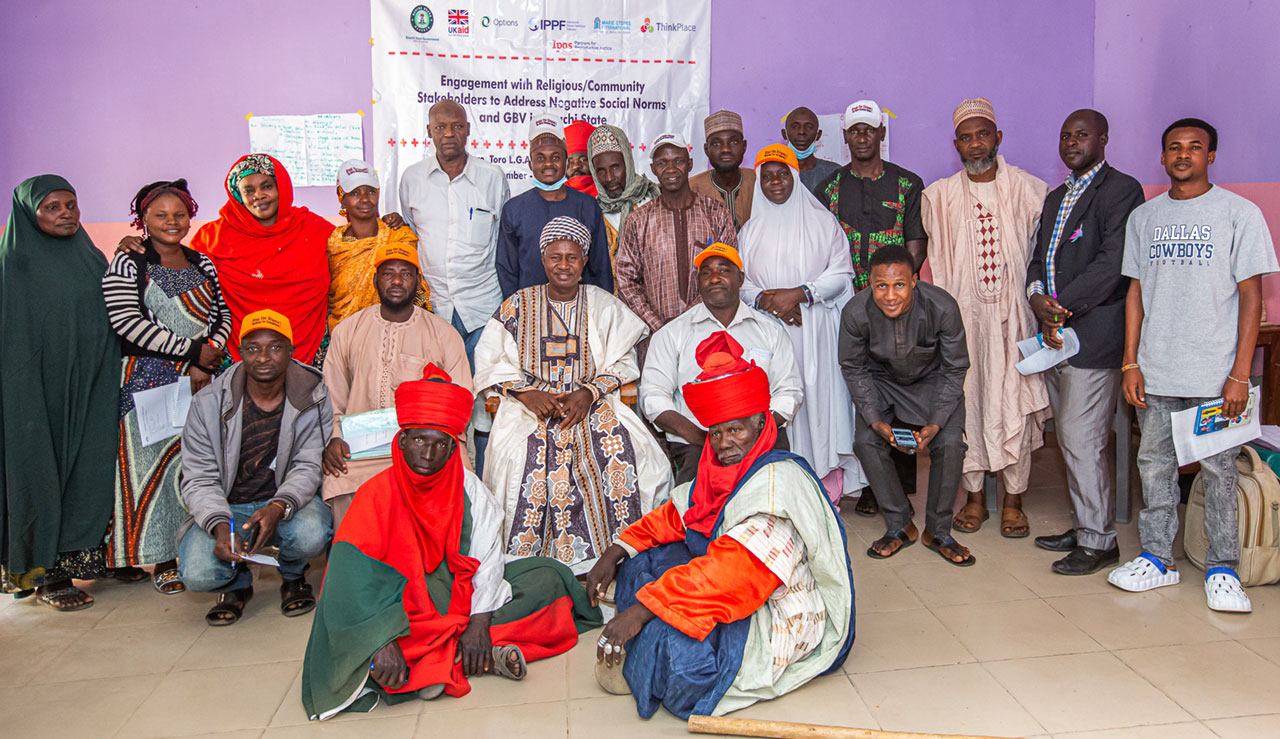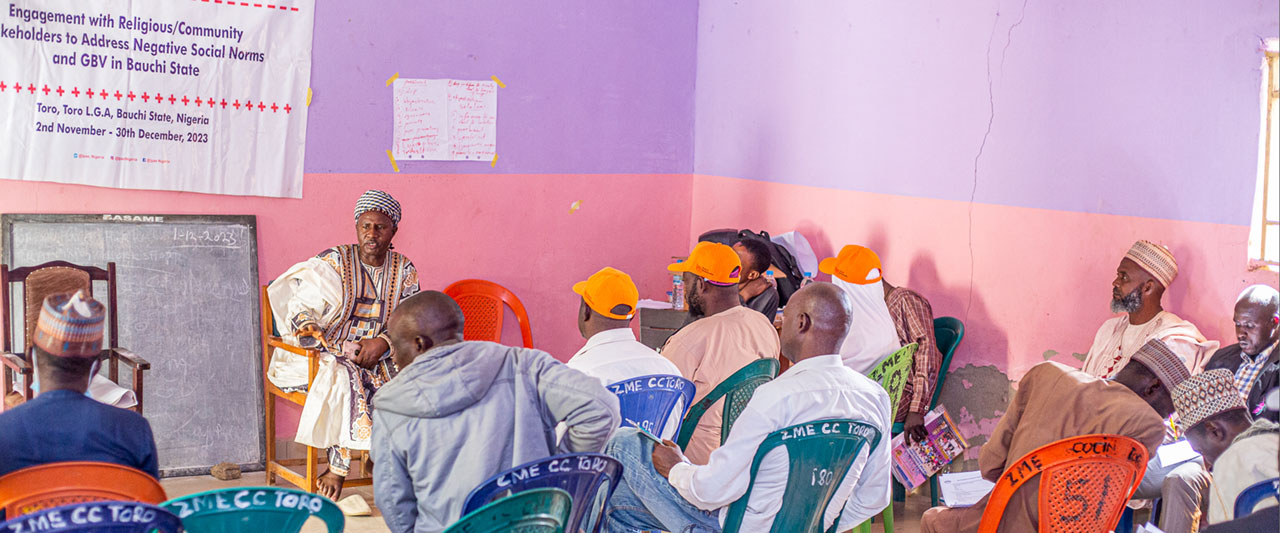Combatting gender-based violence is a massive challenge in Nigeria, where nearly one of every three women and girls aged 15-49 has experienced physical violence, including rape and other forms of sexual violence. Ipas has developed a crucial partnership with religious leaders that’s helping to change this.
In 2023, the Ipas Nigeria Health Foundation began carrying out an innovative effort aimed at reducing gender-based violence, ensuring that survivors get the sexual and reproductive care they need, and seeing that more perpetrators are punished for their crimes.
Working with local partners such as the SAIF Advocacy Foundation, Ipas engaged with religious leaders in four states with the goal of changing negative social norms that drive up rates of gender-based violence. These kinds of norms, for example, might excuse a man who beat his wife for taking contraceptives without his permission or allow cases of rape to go unprosecuted.

“This is about changing the culture of silence around gender-based violence, which is very common in Nigerian society,” says Lucky Palmer, director of the Ipas Nigeria Health Foundation. “Most cases are reported to religious and traditional leaders, but those leaders generally deal with these cases in ways that do not reflect the law. We saw the crucial role that religious leaders can play in reducing gender-based violence and knew we had to engage them.”
Nigeria’s Violence Against Persons Prohibition (VAPP) law, approved in 2015, has been hailed as a national “women’s bill of rights.” It is a legal framework designed to provide violence survivors with the comprehensive medical services they might need—and to enforce punishment of those who perpetrate gender-based violence. Ipas helped to get the law adopted and has been working since to see that it is fully implemented.
This latest effort by Ipas brought together Christian and Muslim religious experts from across Nigeria to develop a sermon guide on gender-based violence. The resulting guide includes messages about issues such as rape, incest, and spousal battery and relates them to specific texts in the Bible and Quran. The guide also includes information on how these issues are addressed in the VAPP law and emphasizes the need to follow the law when handling reports of gender-based violence. It is now being used in dozens of churches and mosques and other types of religious gatherings.
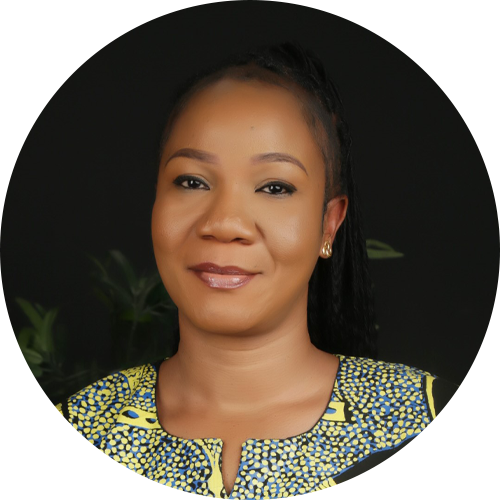
“We want to have this guide used in every mosque and church. And we want all women who have faced gender-based violence to have access to health care, including contraception and other sexual and reproductive health services, if they need it.” — Doris Ikpeze, program manager for the Ipas Nigeria Health Foundation
Violence and the risk of unsafe abortion
Gender-based violence puts women and girls at higher risk for unwanted pregnancy, and survivors may need health care that includes emergency contraception or abortion. In Nigeria, where abortion is illegal except to save the life of the woman, such procedures are often inaccessible, which can result in women using unsafe methods that result in deaths or injuries.
Noting that faith leaders were involved in Ipas’s original efforts to get the VAPP bill adopted, Doris Ikpeze, program manager for the Ipas Nigeria Health Foundation, says Ipas is now “deepening that engagement” to involve them in actively working against gender-based violence and to support care for survivors who need sexual and reproductive health services. Ipas focused the project with religious leaders on four states—Gombe, Jigawa, Bauchi and Borno—where the VAPP law is being implemented at the state level.
An anti-violence guide ‘deeply rooted in the teachings of Christianity and Islam’
A first step was to convene a national meeting of Christian and Muslim faith leaders and religious experts. At this gathering, Ipas drew the connection between gender-based violence and deaths related to abortion by unsafe methods. “Today is a first step toward changing the narratives on gender-based violence and, through that, reducing unsafe abortion,” Palmer told the group.
At a following two-day meeting, 37 Muslim and Christian leaders validated the sermon guide and developed activities for using it in their congregations and communities. The guide is self-described as “deeply rooted in the teachings of Christianity and Islam.” It combines scriptural references, reflections and practical guidance. It says, for instance, “Islam out-rightly condemns rape and any form of sexual violence.” It calls on faith leaders to encourage active involvement in supporting violence survivors and to promote “a culture of reporting and accountability within the faith community.”
‘We want this guide in every church and mosque’
Both faith leaders and members of their congregations who have been reached by the project have endorsed the sermon guide and say they will share its messages. Apostle Professor Samson Fatokun, who is General Secretary of the Christian Association of Nigeria, calls the guide “rich and well-researched.”
Yelwa Abdulhahi said after participating in a training session, “Before now when there is a reported case of rape, no action is taken against the perpetrators. With this training, religious organizations will work in harmony to see that when anyone has been violated, actions will be taken against the person that commits the crime.”
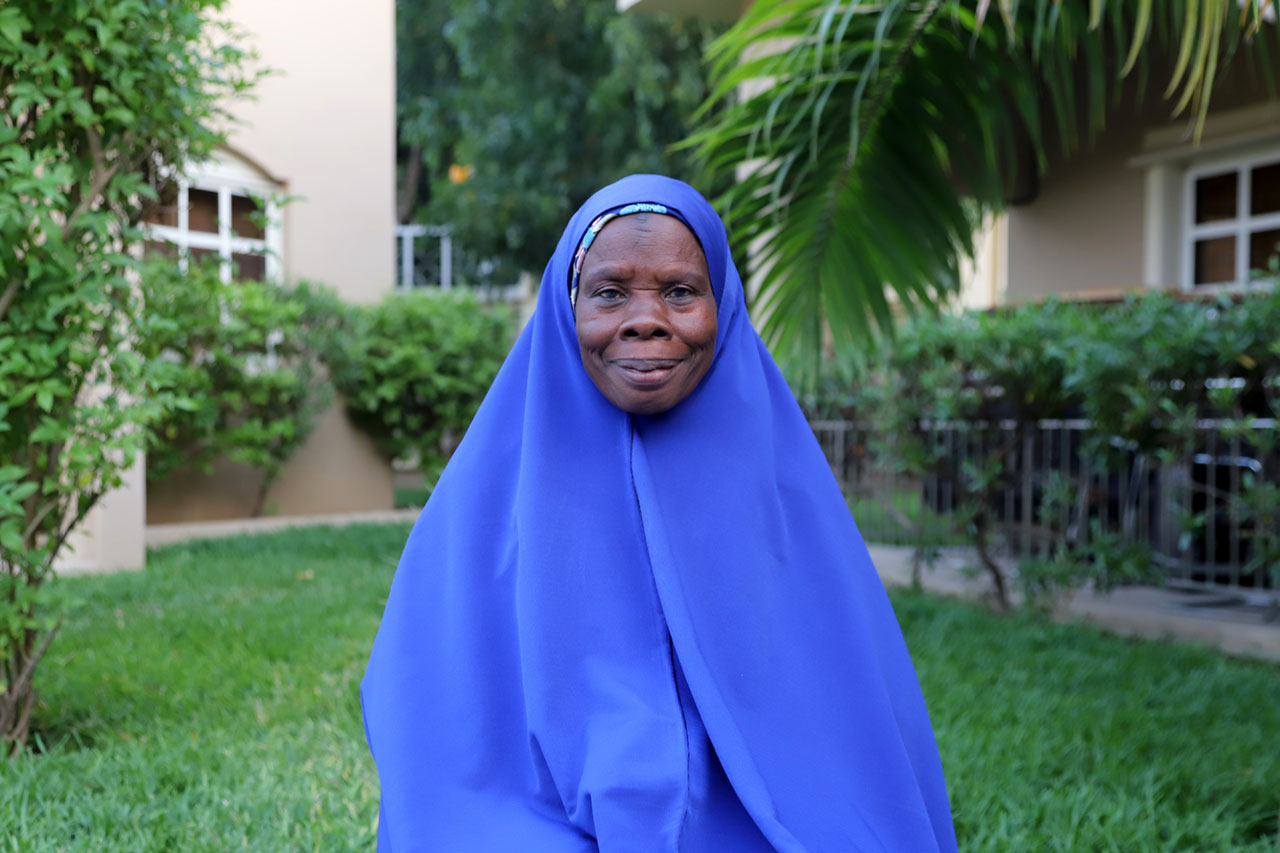
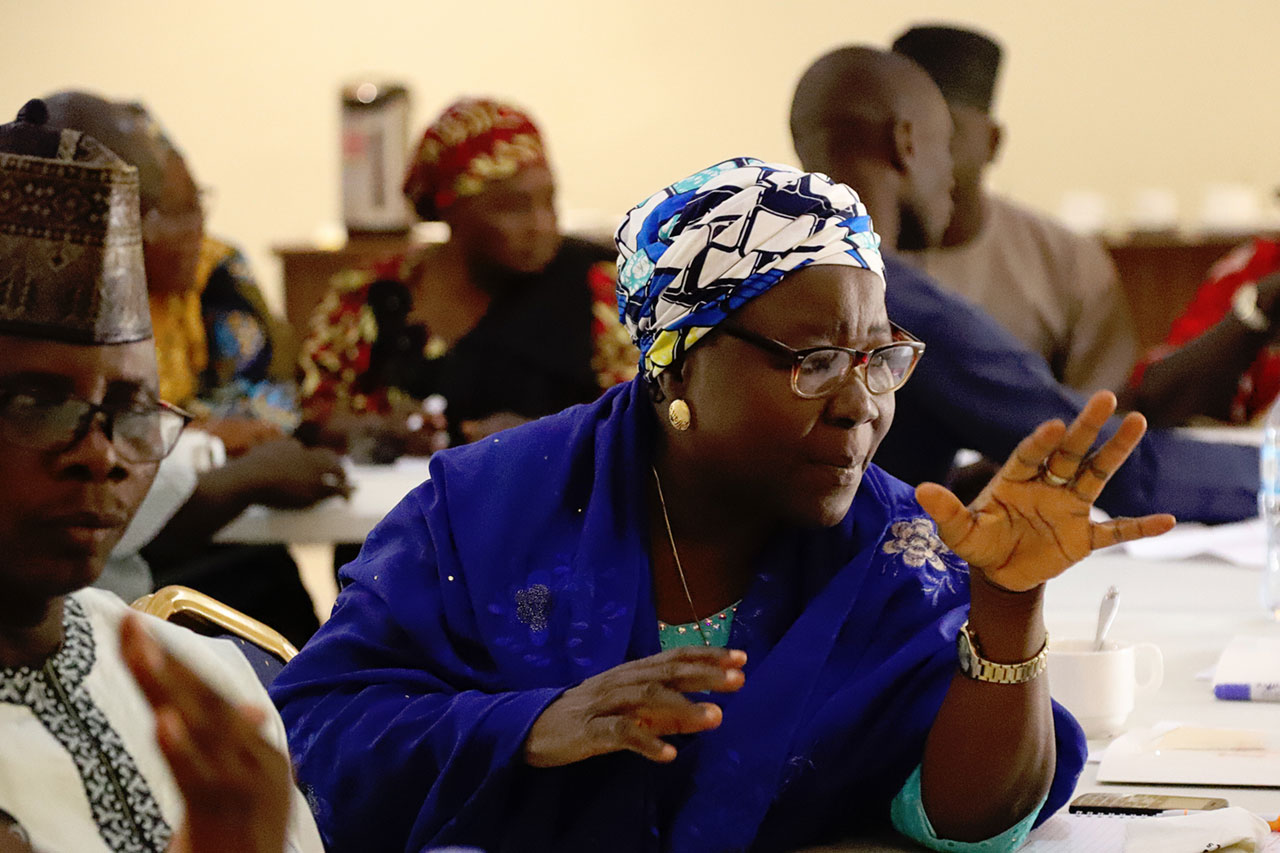
Zainab Jacob Akawu, who attended a meeting of Christian religious groups, said she would share what she had learned with women’s fellowship groups: “I had heard about rape in the past, but I did not know I could do anything about it. I will make sure I share the information I have learned on the VAPP law to empower other women.”
To date, more than 30 faith and community leaders in Gombe State alone are using the sermon notes in their churches and mosques—and sometimes even at wedding ceremonies. “We want to have this guide used in every mosque and church. And we want all women who have faced gender-based violence to have access to health care, including contraception and other sexual and reproductive health services, if they need it,” says Ikpeze. “We will continue collaborating with our partners to reach communities across Nigeria with these messages of positive social norms on how they can support survivors of gender-based violence. We want to get out the word that cases of rape and other types of gender-based violence should be reported not only to religious leaders, but to hospitals and law enforcement as well.”
